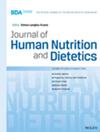Experiences of Dietetic Students Taking Part in an Online Longitudinal Dementia Educational Programme: A Qualitative Study
Abstract
Introduction
Dietitians play a key role in the care of people with dementia, yet there is a lack of literature on the education of dietitians in this area. Dietetic students at the University of Surrey undertook the Time for Dementia programme as a mandatory component of their training to improve their knowledge of, and attitudes towards people with dementia. The programme was delivered online due to COVID-19 restrictions. Students met with people with dementia and their carers over a 2-year period. This study aimed to understand the learning experiences of dietetic students in Time for Dementia, and their perceptions of online delivery.
Methods
All dietetic students undertaking the Time for Dementia educational programme during 2020 and 2021 were invited to take part in a qualitative study. Three focus groups were completed with 14 students on completion of a 2 year Time for Dementia programme. A semi-structured topic guide was used to explore students' self-reported learning outcomes, their experiences of online learning, and their learning experiences around dementia. The data was analysed using reflexive thematic analysis.
Results
Three main themes were identified from the data. First, gaining a holistic understanding of the experience of life with dementia, described student learning on the lived experiences and the challenges faced by people with dementia. Second, shaping future practice, adapting approaches for dementia care, concerned the skills and attitudes that students highlighted as valuable for their future careers, and third, optimising learning in an online environment, outlined student's views and recommendations on online dementia education.
Conclusions
Longitudinal contact with people with dementia can improve knowledge about the realities of life with dementia and inform future practice. The positive learning outcomes reported in this study suggest that online contact with families with dementia can be successfully incorporated into the dietetic undergraduate curriculum.

 求助内容:
求助内容: 应助结果提醒方式:
应助结果提醒方式:


